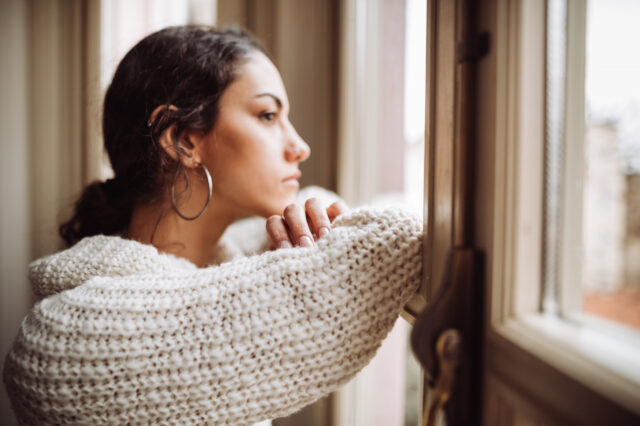Keeping Stress at Bay during COVID-19
Every single one of us has seen their life, in some fashion or another, disrupted by COVID-19, and it is getting tougher to see an end in sight.

Over the past several weeks, and, in particular, the past several days, I am reminded of the Chinese curse, “May you live in interesting times.” With the entire global community struggling to contain and manage the existential threat that is the coronavirus, times are now, if nothing else, interesting. All this on top of other stressors that affect our national community, stress and anxiety have become impossible to escape. Every single one of us has seen their life, in some fashion or another, disrupted, and it is getting tougher to see an end in sight. How then can we take a moment to protect ourselves from the psychological trauma that often follows disasters and extreme emergencies?
Hope for the best, plan for the worst.
At times it may seem like our national, state and local leaders are sending conflicting or vague messages. The same is true from our various news sources and online communications. This is not a malicious attempt to mislead, but, instead, because the times we are in are unprecedented and constantly changing. What may be true, or assumed to be true at one moment, may be outdated shortly thereafter. Further, we need to accept the fact that much remains unknown when it comes to COVID-19 and how the situation will develop. The only truth is that uncertainty can lead to fear and panic.
For now, we all need to accept that we have an incomplete picture of what is happening now and what will happen later. This doesn’t require panicking, but it does mean that we all need to come up with a personal plan for ourselves and our families. Planning can help us combat the stress and anxiety associated with the unknown. We should anticipate disruptions in travel and entertainment, and having a plan for how to keep children engaged can promote calmness. Likewise, try to keep a few extra days of food on hand to limit the number of trips to the grocery store. Plan how you might structure your day if you are asked to work from home.
Be prosocial, not antisocial.
Disasters and emergencies can bring out the worst in people, but they can also bring out the best in people. Remind yourself that everyone is living on edge these days, and all of our coping repertoires are being depleted. A simple trip to the store can be a harrowing experience of elbows flying and tempers flaring. Try to take a moment and take a step back, take a deep breath, and remind yourself to be patient. Try to look out for your neighbors and friends, especially those who may be vulnerable. Remember, at some point this will pass, but how we respond to our friends and families will have longer-lasting effects.
Turn-off and tune-out.
As always, we live in a 24-hour news cycle, and we have the latest information quite literally at our fingertips with our mobile devices. The constant bombardment of the latest number of confirmed COVID-19 cases and associated deaths can only serve to inflame already frayed nerves. It is okay to step away from the news for a few hours and take pleasure in the things that are still good in our lives. Take care of your body. Take deep breaths, stretch or meditate. Try to eat healthy, well-balanced meals, exercise regularly, get plenty of sleep and avoid alcohol and drugs.
Support your children.
What is happening now is the current generation’s version of September 11th or the JFK shooting. Children and adolescents may lack the emotional maturity to appreciate and process events as they unfold, and they will be looking to adults for how to respond. Open up a dialogue with your children to respond to their questions. Make this an educational experience to explain how our government responds to a national emergency. Model behaviors on how to support each other and our community. Above all, ensure that your children experience a sense of safety and resiliency.
Take care of yourself and protect others.
If you do find yourself with symptoms associated with COVID-19, or if you receive the diagnosis, remember to take care of yourself and protect others. Respect your coworkers by staying home as you recover, and isolate yourself from vulnerable others. If you do require assistance, call your doctor and go to the hospital as needed.
These are interesting times indeed, but do not lose sight that this too shall pass, and our families, relationships and communities will be stronger having combatted this crisis together.